ABOUT LSA
Every year, the LSA recognizes great achievements in the field of Law and Society. Each award has a Prize Committee that reviews nominations and selects winners. An LSA membership is required to submit an awards nomination. Nominations for 2024 awards are closed.
PRIZE
Harry J. Kalven, Jr. Prize
The Harry J. Kalven, Jr. Prize is awarded annually (biennially prior to 1999) for “empirical scholarship that has contributed most effectively to the advancement of research in law and society.”
Nominations are open to all forms of law and society scholarship, and from any country of origin, although copies submitted to the committee must be in English.
It is not a book award, nor is it a career achievement award, but is given in recognition of a body of scholarly work, including some portion of work having been completed within the past few years. Self-nominations are accepted.
The award carries a cash prize of $500.
Current Winners
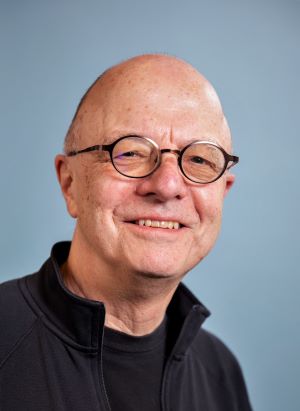
Christopher Lawrence Tomlins – University of California, Berkeley
Christopher Tomlins is the Elizabeth Josselyn Boalt Professor of Law in the Jurisprudence and Social Policy program at University of California, Berkeley. Previously, he served as Chancellor’s Professor of Law at UC Irvine, on the research faculty at the American Bar Foundation, and on the faculty at La Trobe University, Melbourne (Australia). He received his PhD in History from the Johns Hopkins University in 1981, following undergraduate degrees at Oxford and Sussex Universities (UK).
He is a scholar of remarkable productivity and range; the author of four important monographs and of many articles and chapters in renowned outlets, also the editor or co-editor of another five volumes. Throughout his work, he contributes deep and extensive insights concerning the 500 years of American labor and employment history. He draws from a dazzling variety of primary archival and secondary materials, displaying rare erudition while advancing challenging interpretations. Not least of his achievements has been to show how much of social experience and legal institutions are revealed in the everyday regulation of work and employment.
His first book, The State and the Unions: Labor Relations, Law, and the Organized Labor Movement in America, 1880-1960, challenged the conventional wisdom that the New Deal secured important advances for the trade union movement, showing how a conservative judiciary helped to align union and state interests. In Law, Labor, and Ideology, Tomlins shifted to an earlier period of U.S. history – post-Revolution to mid-19th century – tracking the ways in which alternative legal resources for regulating labor, in particular policing powers, competed unsuccessfully with legal-liberal regulation by property and contract law. His third major work, Freedom Bound: Law, Labor, and Civic Identity in Colonizing English America, 1580-1865, received multiple awards (e.g., Bancroft and Hurst) for its intricate account of the demographics of labor and colonizing, manning and planting, across three varied regions of colonial America. Each region displayed its demographically-based mixtures of freedom and servitude, and each traveled its own distinctive path of development. The common thread uniting this plural sociolegal world was the project of colonizing as a law-saturated and law-constituted enterprise. Law legitimated colonizing; law authorized the movement of people and labor; and law furnished the basic resource for governing colonial societies. His most recent monograph, In the Matter of Nat Turner, takes up a much-studied event to reveal unexpected intersections of slavery, political economy, and religion.
With unmatched pleasure and pride, we award to Christopher Tomlins the 2023 Harry J. Kalven, Jr. Prize for his continuing and most distinguished empirical contributions to the advancement of law and society research.

Michael McCann – University of Washington
The Kalven Prize is given for empirical scholarship that has contributed most effectively to the advancement of research in law and society. Michael’s many nominators point out that he is richly deserving of the award in those terms. His outstanding contributions to our field include not just his intellectual contributions, but also his extensive mentoring, his role in founding an important Law and Society program at the University of Washington, and his gracious service to the Association.
Michael’s research has not merely contributed to but serves as the basis for new scholarship in the subfields of: law and political mobilization; cause lawyering; rights claiming; and the politics of tort law. In Rights at Work (winner of the LSA Jacob Book prize, among others) Michael explores how law shapes, and is used by, equal pay activists to advance their movement. Drawing on extensive interviews and analyses of their legal and other tactics, Michael shows us when law matters and when it doesn’t. He also identifies some of the risks of invoking law. As one of his nominators noted, “Many of the insights developed in the book are now so widely acknowledged that it is almost possible to forget that the work was in many ways a response to what was, at the time, widespread academic skepticism about the political utility of rights.” Without denying the limitations of rights, Michael empirically demonstrates that activists can be savvy enough to work within the limitations of rights to effectively use law as a tool for political mobilization. Michael helped create a new model of law and political mobilization that has endured and influenced a generation of scholars exploring the significance of legal consciousness in a variety of contexts, including political mobilization.
Distorting the Law: Politics, Media and the Litigation Crisis (2004) (with William Haltom and his second LSA Jacob Book Prize winner), seeks to understand how distorted understandings of tort litigation became so widely accepted. Drawing upon extensive interviews, nearly two decades of content analysis of newspaper coverage of tort cases, and case studies of the McDonald’s coffee case and the tobacco litigation, the book provides extensive empirical evidence of the important role of the media in translating stories about law for the general public. In addition to scholarly acclaim for the book, Distorting the Law is widely read by legal practitioners and was an important resource fort the HBO documentary, Hot Coffee.
Michael, turning his attention to comparative projects beyond the United States, co-edited—with David Engel and Anne Bloom—two books which demonstrate his commitment to junior scholars and the importance of considering the cultural construction of tort law. Entitled, Fault Lines: Tort Law as Cultural Practice (2009) and Injury and Injustice: The Cultural Politics of Harm and Redress, the books explore the cultural dimensions of how injuries are conceptualized and recognized.
Union by Law: Filipino American Labor Activists, Rights Radicalism and Racial Capitalism (2020) (with George I. Lovell) further shows Michael’s crucial role in the advancement of research in law and society. In a review in Dissent magazine (Fall 2020), Samuel Bagenstos – a long time civil rights lawyer and law professor – describes Union by Law as a “remarkable” and “timely” book that reminds us that effective legal mobilization is still possible when activists and attorneys work together to frame the litigation in terms that are helpful to building a movement. The book tells the story of Filipino workers in the United States and their struggle to overcome persistent class and race-based discrimination and oppression.
Michael’s Kalven Prize should include, by reference, his Wheeler prize for outstanding mentoring in the field. Michael has mentored and supervised hundreds of scholars in sociolegal studies, his own and those in myriad institutions across the globe. He founded and, for more than a decade, directed the unique and influential Law and Society Program at the University of Washington. That program includes a certificate program for Ph.D. students and a center for comparative law and society research.
As one of the letters submitted in support of his nomination concludes:
Michael wrote a short piece for Law and Courts (Spring, 1996) called “It’s Only Law and Courts But I Like It” (after the Rolling Stones). It’s a wonderful essay expressing his enthusiasm for the field, which is truly contagious. But we think it’s also appropriate because, for many of us, Michael is the “Mick Jagger” of our field. His body of scholarship has had, and will continue to have, a significant and enduring impact on our field and on all those who rely on Law and Society scholarship to use legal activism to make the world a better place.
Michael McCann is richly deserving of the 2023 Harry J. Kalven, Jr. Prize
Past Winners
Year
Individual(s)
Affiliation
Nominations Require:
- A letter of support from the nominator
- The candidate’s curriculum vitae
- 1 of 2 additional letters of support will be accepted, but are not required.
All supporting documents must be submitted in English and be in .DOC, .RTF, or .PDF format.
PRIZE
Herbert Jacob Book Prize
The Herbert Jacob Book Prize annual competition is open to books from all fields of, and approaches to, law and society scholarship published in the previous year (excluding works of legal history, which are considered for the Hurst Prize).
Textbooks, casebooks, and edited collections are not eligible for the award, but monographs will be considered. Nominations are accepted from all aspects of the field and any country of origin and may include first books of young scholars and books that are capstones of long careers in law and society research and publication. Self nominations are accepted. Nominators must be current LSA members.
The responsibility of ensuring that a work is submitted for the most appropriate book prize rests with the nominator. As a rule of thumb, books that have a significant historical focus should be directed to the Hurst Prize, while other works of socio-legal scholarship should be directed to the Jacob Prize. A book submitted for both prizes may end up being considered for neither.
The award carries a cash prize of $500.
Current Winner
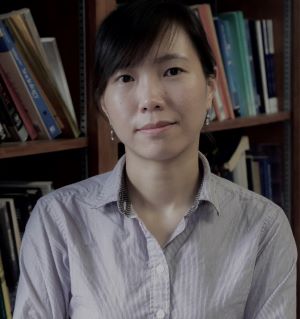
Ke Li – City University of New York – John Jay College
Marriage Unbound: State Law, Power, and Inequality in Contemporary China (Stanford University Press, 2022)
Marriage Unbound reveals devastating inequalities in Chinese divorce courts. Drawing on more than ten years of ethnographic field research and in-depth archival data, Professor Li documents collusion among judges and lawyers that force disadvantaged rural women to accept unfair divorce settlements. With lucid prose and a wealth of empirical evidence, Li theorizes the complex interplay between culture and the state and develops a rich historical analysis of authoritarian legality. Her work exposes how culture and statecraft profoundly shape legal mobilization and how judicialization reproduces gender inequalities in contemporary China.
Honorable Mention

Randle C. DeFalco – University of Hawai‘i at Mānoa William S. Richardson School of Law
Invisible Atrocities: The Aesthetic Biases of International Criminal Justice (Cambridge University Press, 2022)
Invisible Atrocities investigates the role of aesthetics and human emotion in the conceptualization of international crimes. Drawing on historical examples and his experience as a legal advisor in Cambodia, Professor DeFalco argues that international criminal law reflects elite sensibilities in the Global North and privileges certain forms of violence. The aesthetic bias toward horrific spectacle obscures more banal forms of violence, such as famine creation, corruption, aid interference, or socioeconomic oppression. DeFalco argues that emotional responses to atrocity aesthetics drive the practice of international criminal law and frequently undermine the goals and values of international justice.
Past Winners
Year
Individual(s)
Affiliation
Book
Nominations Require:
- Nominators must be current LSA members.
- To stress the restriction stated above, books eligible for the Jacob Prize may be from any field of socio-legal scholarship except history; books with a significant historical focus should be submitted instead to the Association’s Hurst Prize.
- Only one single-authored work by the same author in a given year will be accepted. Two works by the same author will be accepted if one or both works are jointly authored.
- Books must be published in English, or be English translations of original works.
- Books submitted must have a copyright date (regardless of actual publication dates) during the calendar year prior to the award ceremony.
- Page proofs may be sent if the book will be published soon with the proper year’s date.
- Self-nominations are accepted.
- Copies of the book are required to be sent directly to the Herbert Jacob Book Prize Committee Members. We will reach out to the publishers of the nominated books and provide them with the addresses for the prize committees directly.
- OPTIONAL – A letter of support from the nominator, including a synopsis of the book.
All supporting documents must be submitted in English and be in .DOC, .RTF, or .PDF format.
PRIZE
James Willard Hurst Book Prize
The James Willard Hurst Prize is awarded annually (biennially prior to 2002) for the best work in socio-legal history published in the previous year. The field of socio-legal history is broadly defined to include the history of interrelationships between law and social, economic, and political change; the history of functions and impact of legal agencies, legislative and administrative as well as judicial; the social history of the legal profession; and similar topics. Self-nominations are accepted. Nominators must be current LSA members.
Textbooks, casebooks, and edited collections are not eligible for the award, but monographs will be considered. The Association seeks studies in legal history that explore the relationship between law and society or illuminate the use, function, and cultural meaning of law and society. The Association discourages submission of purely doctrinal studies in the evolution of appellate case law.
The responsibility of ensuring that a work is submitted for the most appropriate book prize rests with the nominator. As a rule of thumb, books that have a significant historical focus should be directed to the Hurst Prize, while other works of socio-legal scholarship should be directed to the Jacob Prize. A book submitted for both prizes may end up being considered for neither.
The award carries a cash prize of $500.
Current Winner
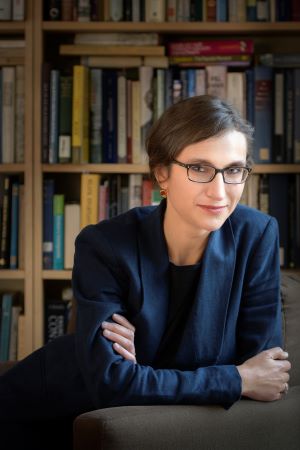
Jessica M Marglin – University of Southern California
This beautifully written book powerfully asserts a new theory of legal belonging. Using clear prose and stylish organization, The Shamama Case examines the 1873 lawsuit over the will of Nissim Shamama. In deciding how to distribute Shamama’s huge estate, the Italian court had to decide what law should apply, and in order to decide this, the court first had to conclude the deceased’s nationality. As a Jewish man from Tunisia, the question arose whether he was subject to the laws of Italy or the Bey of Tunis. Was the deceased’s nationality “Jewish?” Was he “stateless?” Marglin’s analysis of the Shamama case offers a powerful and effective focus for exploring the concept of “legal belonging” as an analytical category, in contrast to more standard ideas of citizenship and nationality.
The committee was particularly impressed at Marglin’s extensive research. She amassed archival data from several countries, translating a wide variety of documents from multiple languages. Her argument excellently captures the ambiguities and subtleties of historical experience; interweaves social, cultural, and personal components of the case among the legal elements; and adeptly centers the uncertainty of nationality within this place in history. The result is stunning historical research across jurisdictions and across several languages. It reads almost like a griping trade book one would take on vacation, so enjoyable is its pose.
Honorable Mention

Robert Travers – Cornell University
Empires of Complaints: Mughal Law and the Making of British India, 1765-93 (Cambridge University Press, 2022)
Empires of Complaints pushes against established understandings, using historical methods to further law & society scholarship. Travers makes a critical theoretical intervention in analyzing competing systems of law. Directly engaging in this burgeoning area of legal history scholarship, Travers explores how the existing system of laws becomes co-opted by the new laws of colonizers. He documents the steady creation of the new colonial taxation and civil law in 18th century India through the East India Company selectively adapting and reworking of Mughal norms and precedents. Yet Travers challenges the conventional top-down approach to legal history by showing how Mughal or native law can become very resilient within a colonial setting. This very ambitious worked demanded Travers move beyond the British-cenrtric frame to go deep into Mughal archives. In doing so, he identified more push-back against British colonizing law that had been understood.
Past Winners
Year
Individual(s)
Affiliation
Book
Nominations Require:
- Nominators must be current LSA members.
- Books must be published in English, or be English translations of original works.
- Books submitted must have a copyright date (regardless of actual publication dates) during the calendar year prior to the award ceremony.
- Only one single-authored work by the same author in a given year will be accepted. Two works by the same author will be accepted if one or both works are jointly authored.
- Self-nominations are accepted.
- Copies of the book are required to be sent directly to the J. Willard Hurst Book Prize Committee Members. We will reach out to the publishers of the nominated books and provide them with the addresses for the prize committees directly.
- Page proofs may be sent if the book will be published soon with the proper year’s date.
- OPTIONAL – A letter of support from the nominator, including a synopsis of the book.
All supporting documents must be submitted in English and be in .DOC, .RTF, or .PDF format.
PRIZE
Article Prize
The Law and Society Association Article Prize recognizes exceptional scholarship in socio-legal studies for a journal article or chapter in an edited book. Articles may be published in any scholarly journal, including socio-legal journals, journals in other disciplines, and law reviews. Self-nominations are accepted.
The competition is open to all forms of law and society scholarship, to authors at any stage of their careers, and to authors from any country of origin.
The award carries a cash prize of $500.
Current Winners
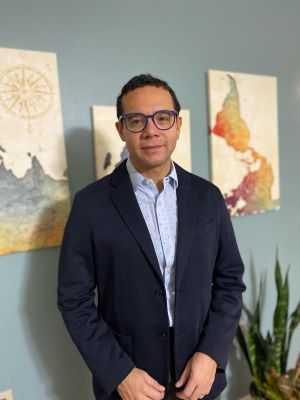
Fabio de Sa e Silva – University of Oklahoma
Fabio de Sa e Silva is Associate Professor of International Studies and the Wick Cary Professor of Brazilian Studies at the University of Oklahoma. He studies the social organization and impact of law and lawyers in Brazil and comparatively. Currently, Fabio is one of the organizers of the Project on Autocratic Legalism (PAL), an LSA International Research Collaborative that is designing comparative research on how rising autocrats use law to amass power and what can be done to stop their moves. In this capacity, he also hosts the PAL Cast, a podcast series where he interviews lead scholars on law and (un)democratic politics.
“Relational legal consciousness and anticorruption:
Lava Jato, social media interactions, and the co-production of law’s detraction in Brazil (2017–2019)” Law & Society Review, 2021
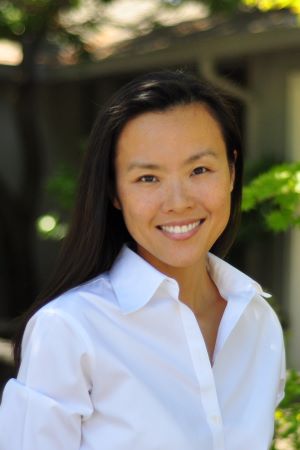
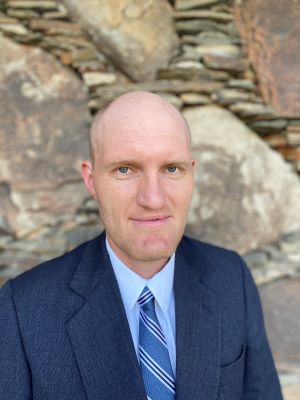
Emily Ryo – USC Gould School of Law
Emily Ryo is a professor of law and sociology at the USC Gould School of Law. She received a JD from Harvard Law School and a PhD in Sociology from Stanford University, where she was a National Science Foundation Graduate Research Fellow. Her research focuses on immigration enforcement, immigration detention, and access to justice for immigrants. Her work has been supported by the Russell Sage Foundation, the Carnegie Corporation of New York, the American Bar Foundation, and the National Science Foundation, among others. She has published widely in both leading sociology and law journals, including the American Sociological Review, Law and Society Review, Law and Social Inquiry, Proceedings of the National Academy of Sciences, Stanford Law Review, UCLA Law Review, and Minnesota Law Review.
Ian G Peacock – University of California, Los Angeles
Ian Peacock is a first-year law student and a Rubenstein Scholar at the University of Chicago Law School. Before law school, Ian completed his undergraduate studies at Brigham Young University and a Ph.D. in sociology at the University of California, Los Angeles. Ian has an ever-expanding set of research interests, but he has mostly written about organizational theory, administrative and judicial decision-making, criminal justice, and international migration law and policy. Ian’s research has appeared in law reviews such as Immigration and Nationality Law Review and Southern California Law Review. His work has also appeared in interdisciplinary law journals, including Journal of Empirical Legal Studies and Law & Society Review, and generalist social science journals including American Behavioral Scientist and Socius.
“The Study of Pandemic and Stigma Effects in Removal Proceedings”. Journal of Empirical Legal Studies (2022)
Past Winners
Year
Individual(s)
Affiliation
Article
Nominations Require:
- Nominators must be current LSA members.
- Article copies submitted to the committee must be in English.
- Only one single-authored work by the same author in a given year will be accepted. Two works by the same author will be accepted if one or both works are jointly authored.
- The article must have a publication date within the two calendar years prior to the awards ceremony. Articles will only be considered once within the two-year period of eligibility.
- The full article, including full bibliographic citation.
- OPTIONAL – A letter of support from the nominator, including an abstract of the article.
All supporting documents must be submitted in English and be in .DOC, .RTF, or .PDF format.
PRIZE
John Hope Franklin Prize
The John Hope Franklin Prize is awarded annually by the Law and Society Association to recognize exceptional scholarship in the field of Race, Racism and the Law.
The Franklin Prize is awarded for an article published in the two calendar years prior to the award year. The competition is open to all forms of law and society scholarship, to authors at any stage of their careers, and to authors from any country of origin. Articles may be published in any scholarly journal, including socio-legal journals, journals in other disciplines, and law reviews, or may be a chapter in a book volume. Co-authored articles, and self-nominations, may be submitted for consideration.
While there is no limit on the number of articles one may nominate, an article may not be considered for the John Hope Franklin Prize and another LSA award. The decision in determining whether an article should be submitted for consideration for the Franklin Prize, rather than another LSA award, rests with the article’s nominator in consultation with the author.
The award carries a cash prize of $500.
Current Winners

Devon W Carbado – University of California, Los Angeles
Devon Carbado (University of California Los Angeles) is the Honorable Harry Pregerson Professor of Law. His paper “Strict Scrutiny and the Black Body” intervenes to examine how Black people live under a socio-legal regime of strict scrutiny that treats the mere sight of Blackness as a suspect classification. Drawing on the legal analysis of the strict scrutiny doctrine, Carbado illuminates how legal suspicion of Black people is an ongoing racial project in the legal context. By tracing the legal roots of the strict scrutiny doctrine, Carbado’s research presents a persuasive case to take
Past Winners
Year
Individual(s)
Affiliation
Publication
Nominations Require:
- Nominators must be current LSA members.
- Article copies submitted to the committee must be in English.
- The article must have a publication date within the two calendar years prior to the awards ceremony. Articles will be considered only once during the two-year period of eligibility.
- Only one single-authored work by the same author in a given year will be accepted. Two works by the same author will be accepted if one or both works are jointly authored.
- The full article, including full bibliographic citation.
- OPTIONAL – A letter of support from the nominator, including an abstract of the article.
All supporting documents must be submitted in English and be in .DOC, .RTF, or .PDF format.
PRIZE
Dissertation Prize
The LSA Dissertation Prize is awarded annually to a dissertation written within 12 months of the prize year that best represents outstanding law and society scholarship.
The award carries a cash prize of $500.
Current Winners
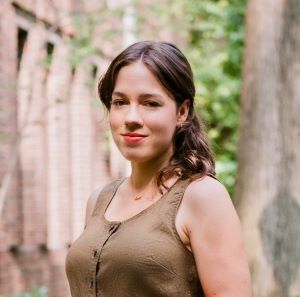
Dylan Farrell-Bryan – University of Pennsylvania
The winning dissertation, Bureaucracies of Removal: The Labor and Logics of US Immigration Courts, authored by Dylan Farrell-Bryan of the University of Pennsylvania and Yale Law School, is an efficient, effective tour de force of socio-legal research that demonstrates her capacity to dramatically advance the field, both methodologically and substantively.
Dr. Farrell-Bryan’s dissertation begins with an unstated assumption: that in order to capture a complete picture of a dispute-resolution institution, it is necessary to talk to all the actors involved. This conundrum, which has bedeviled research on legal institutions since Martin Shapiro first developed the decision-making triad in Courts, is the hidden genius of Dr. Farrell-Bryan’s work. Through over 100 interviews, she developed an understanding of the American immigration system through the eyes of all three legs of the triad. In three well-crafted papers, she paints three different pictures of the immigration system: one through the eyes of lawyers representing immigrants, one through the eyes of lawyers representing the government, and one through the eyes of immigration judges.
In discussing the system as seen by immigration lawyers, Dr. Farrell-Bryan develops the role of time in affecting participants’ views. She demonstrates that “time” as a concept is neutral – sometimes creating opportunities, sometimes creating difficulties. But she demonstrates that the use of time is deeply reflective of the values that infuse the immigration system – whether the government’s values or those of immigrants, time can be determinative of outcomes in a variety of ways. Time is a cutting-edge frontier in socio-legal research, and the committee in particular noted Dr. Farrell-Bryan’s development of this theme throughout this paper.
In her paper on judges, Dr. Farrell-Bryan developed a new concept related to the ways that street-level bureaucrats can both be controlled through central management and can resist that control through their own actions. This paper, drawing on 30 in-depth interviews with immigration judges, advances our understanding of the ways in which judges form part of the administrative state and yet are also separated from it. The committee also remarked on the careful explication of the research here that provided key evidence for the major theoretical innovations.
The committee notes that Dr. Farrell-Bryan’s dissertation also included a third paper drawing on interviews of government attorneys in the immigration system – specifically, attorneys who represent the Department of Homeland Security. Our lack of specific praise for this paper should not be interpreted as condemnation; while it is an outstanding piece of standard socio-legal research and thus supports the award of the prize, the committee did not regard it as field-changing in the way that the other papers were. At the risk of sounding flip, this paper was merely an excellent piece of research that should be widely read and cited.
Honorable Mention
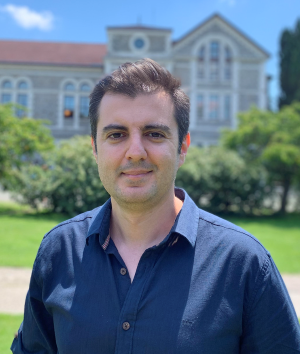
Erdem Demirtaş – Bogazici University, Istanbul, Turkey
The committee also awarded an honorable mention to Abdullah Erdem Demirtaş of Boğaziçi University for his dissertation, Constitutional Courts During Political Upheavals: The Case of the Turkish Constitutional Court. This dissertation draws on several dozen interviews of sitting and retired Turkish judges and significant media content analysis to trace out a multi-decade story of an institution that is both a bulwark and a barrier of democracy in Turkey. Dr. Demirtaş in particular is to be commended for successfully completing interviews of judges who have contested the Erdogan regime’s movements toward authoritarianism and who could have been punished for speaking frankly with him. If nothing else, this research represents the highest standards of ethical conduct in the investigation of an important question and deserves to be read and cited for at least this.
Past Winners
Year
Individual(s)
Affiliation
Paper
Nominations Require:
- Nominators must be current LSA members
- The dissertation must have been filed with the institution of higher education (U.S or non-U.S) during the calendar year prior to the award ceremony.
- The full dissertation in English; translations from other languages into English are welcome.
- An abstract of the dissertation, also in English.
- OPTIONAL – One letter of nomination from a regular member of the Law and Society Association.
- No self-nominations or student-member nominations are accepted.
All supporting documents must be submitted in English and be in .DOC, .RTF, or .PDF format.
PRIZE
Graduate Student Paper Prize
The LSA Graduate Student Paper Prizes are awarded annually to a graduate student whose nominated papers, written within 18 months of the prize year, best represent outstanding law and society research.
The award carries a cash prize of $500.
Current Winners
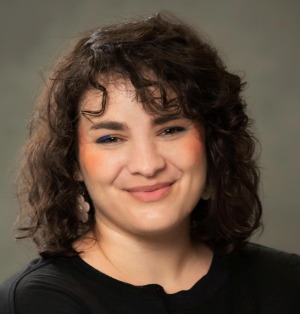
Charlotte Rosen – Northwestern University
Charlotte Rosen is a PhD candidate in History at Northwestern University. Her dissertation chapter, “Harris v. Philadelphia and the Dilemma of Mass Imprisonment in Law and Order Philadelphia, 1986-2000,” offers a fine-grained analysis of a prisoner lawsuit challenging the conditions in Philadelphia jails (which are referred to as ‘prisons’ in Philadelphia) and the ensuing court battles to limit pre-trial detention to reduce overcrowding. Combining archival research (including access to closed papers) and analysis of contemporaneous media coverage of controversies surrounding pre-trial release, the paper contributes to historiographies of penal policy by shifting the analysis from national politics to the county and municipal levels in order to trace local resistance to punitive crime control agendas in the 1980s and 1990s. While limits to pre-trial detention were temporary and ultimately failed, the paper reconstructs this historical case to argue that mass incarceration was not inevitable, nor did it go unchallenged during the period when incarceration rates began to skyrocket in the United States.

Victoria Piehowski – University of Minnesota
Victoria Piehowski is a PhD candidate in Sociology at the University of Minnesota. Her dissertation chapter, “’We Broke ‘em, We Fix ‘em:’ Trauma Discourse, Veterans Treatment Courts, and the Politics of Crime,” chronicles the establishment of the first Veterans Treatment Courts in Minnesota. Combining interviews and ethnographic fieldwork, the paper traces how advocates of Veterans Treatment Courts mobilized medical discourses about trauma to assert a purportedly causal link between trauma experienced during military service and subsequent criminal behavior – referred to as the “direct nexus” between trauma and crime. Bringing together interdisciplinary literature in science and technology sciences and sociolegal studies, the paper demonstrates that, in spite of a lack of consensus in the medical literature as to whether or not a causal link between trauma and violent crime in fact exists, advocates discursively linked the two in order to justify psychiatric treatment as a viable alternative to incarceration for former military convicted of serious crimes, including violent crime. The paper argues that this purportedly causal link helped to facilitate the creation of a new institutional venue – the Veterans Treatment Court – at this interface between clinical medicine and criminal law. The paper further argues that these exceptions for veterans have had the effect of shoring up punitive approaches to crime for most criminal defendants through a selective rendering of only some experiences of trauma – i.e., trauma experienced during military service – as sympathetic and meriting treatment instead of punishment.
Past Winners
Year
Individual(s)
Affiliation
Paper
Nominations Require:
- Only non-student members of the Law and Society Association may make nominations for the Graduate Student Award. No self-nominations are accepted.
- The paper must have been submitted within the two calendar years prior to the awards ceremony by a matriculated graduate or graduate professional student at any U.S. or non-U.S. institution of higher education. Papers originally written for coursework within this same time period and subsequently published are still eligible for nomination. Papers are only considered once within the two-year period of eligibility.
- No instructor may nominate more than two student papers for the award.
- Only one single-authored work by the same author in a given year will be accepted. Two works by the same author will be accepted if one or both works are jointly authored.
- In submitting the paper for award consideration, the nominator must include the date and title of the course for which the paper was written.
- Submissions must be in English; translations from other languages into English are welcome.
- The paper must be double-spaced; may not exceed 18,000 words in length, including notes and references; and must be in a minimum of 12 point font.
- OPTIONAL – Nominators can include a letter of support describing the merits of the student paper they are submitting.
All supporting documents must be submitted in English and be in .DOC, .RTF, or .PDF format.
PRIZE
Undergraduate Student Paper Prize
The LSA Undergraduate Student Paper Prizes are awarded annually to an undergraduate student whose nominated papers, written within 18 months of the prize year, best represent outstanding law and society research.
The award carries a cash prize of $500.
Current Winner
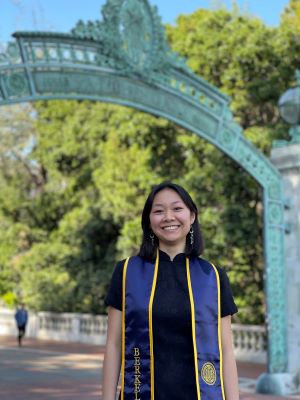
Shealyn Massey
University of California, Berkeley
The Law and Society Association’s Undergraduate Student Paper Prize goes to Shealyn Massey for their paper, “The Legal Consciousness and Legal Mobilization of Queer Asian Pacific Islanders,” and was nominated by Catherine Albiston.
The paper, which is Ms. Massey’s Honors Thesis, was nominated by Professor Catherine Albiston, reports findings from an original research project examining how individuals whose intersectional identities as queer and Asian Pacific Islander complicate the ways individuals navigate the law across and within multiple communities. The project investigates the powerful influence of culture and community in perceptions of and engagement with the law, as respondents navigated multiple identities, stereotypes and discrimination in both queer and Asian communities. Ms. Massey’s empirical research and theoretically rich analysis of queer respondents’ distrust and ambivalence regarding the law is an important contribution to understanding how and why existing anti-discrimination approaches fail to capture intersectional forms of discrimination and exclusion. The paper represents an excellent contribution to studies of legal consciousness and legal mobilization in the Law and Society tradition.
Past Winners
Year
Individual(s)
Affiliation
Paper
Nominations Require:
- Only regular LSA members and graduate student LSA members who have received the nominated papers while working as lecturers or teaching assistants may nominate papers for the Undergraduate Student Award. No self-nominations are accepted.
- No instructor may nominate more than two student papers for the award.
- Only one single-authored work by the same author in a given year will be accepted. Two works by the same author will be accepted if one or both works are jointly authored.
- The paper must have been submitted within the two calendar years prior to the awards ceremony by a matriculated undergraduate student at any U.S. or non-U.S. institution of higher education including two-year community colleges. Papers originally written for a class within this same time period and subsequently published are still eligible. Papers are only considered once within the two-year period of eligibility.
- In submitting the paper for award consideration, the nominator must include the date and title of the course for which the paper was written.
- Submissions must be in English; translations from other languages into English are welcome.
- The paper must be double-spaced; may not exceed 18,000 words in length, including notes and references; and must be in a minimum of 12 point font.
- OPTIONAL – Nominators can include a letter of support describing the merits of the student paper they are submitting.
All supporting documents must be submitted in English and be in .DOC, .RTF, or .PDF format.
PRIZE
International Prize
The Law and Society Association International Prize is awarded annually to a scholar, normally resident outside the United States, in recognition of scholarship that has contributed significantly to the advancement of knowledge in the field of law and society. It is not a book prize, but is instead given in recognition of a body of scholarly work.
The award carries a cash prize of $500.
Current Winners
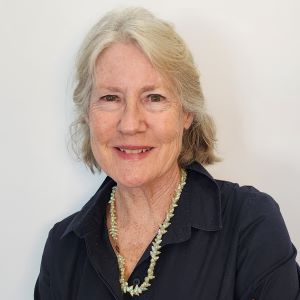
Sharyn Roach Anleu – Flinders University of South Australia
The committee is pleased to present the International Prize award to Professor Sharyn Roach Anleu. The committee was extremely impressed by Professor Roach Anleu’s significant publication record in multiple fields as well as her dedication to the advancement of knowledge through enthusiastic and unwavering service work. One nominator described Professor Roach Anleu’s scholarly contributions in the field of law and society as follows: “Over her career, [Prof. Roach Anleu’s] body of scholarly work focuses on two broad streams: legal professions, especially the recruitment, advancement, and experience of women; and the interaction between law and other modes of behavioral regulation (for example, regulation of emotion)…. Among [her] outstanding contributions to the advancement of knowledge in the field of law and society is her innovative application of key sociological concepts, such as emotional labor, job satisfaction, professionalization, gender and work/family conflict to a population – the judiciary – that has not previously been studied as a profession or as a workplace.”
Professor Roach Anleu has published 6 books, 45 book chapters, 60 articles in peer-reviewed journals (plus translation of articles into Portuguese, Russian and Spanish) and 20 reports to courts and their judicial officers. She has contributed to the advancement of knowledge in the areas of the regulation of deviance, the legal regulation of surrogacy and reproductive technology, the intersection of law and emotion, and literature and humor studies. As one nominator wrote with respect to her work on judging and emotion, Professor Roach Anleu’s “extensive empirical evidence on the judiciary… [demonstrates] broad implications… for foundational legal (and sociological) concepts such as impartiality/objectivity and legitimacy…. Sharyn’s work makes clear that judges are human, that their behavior can be fruitfully studied, and that the fruits of these studies have important implications for judicial behavior and legal processes more generally.” With respect to this area of her work, another nominator wrote that her research “has had real world impact in that the judiciary has taken note of her work, acted on it, and encouraged her to undertake more. Her work indeed defines the field.”
In addition to her scholarship and publishing, Professor Roach Anleu has been, as one nominator put it “unstinting in her service role to the community.” She has “an ever-present willingness to organize panels, conferences and events that help showcase the work of others and forge connections among international scholars.” As another nominator wrote, Professor Roach Anleu “is a generous, collegial and collaborative scholar who has been instrumental in forging international linkages that advance socio-legal scholarship and foster knowledge.” She is an active member of the International Sociological Association, Research Committee for the Sociology of Law and the Academy of the Social Sciences in Australia. She is currently a co-convenor of the Law and Society Association CRN on Law and Emotion, and regularly teaches at the International Institute for the Sociology of Law. Prof. Roach Anleu is a scholar who has contributed to the advancement of knowledge in the field of law and society not just through her own research work but also by helping to support, educate and mentor the next generation of scholars.
Honorable Mention
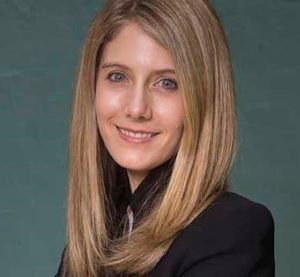
Jane McAdam – UNSW Law
The International Prize Committee would also like to give honorable mention to Professor Jane McAdam. Professor McAdam is a leading scholar in the area of refugee law and climate change who has made significant contributions to the understanding of climate-change related forced migration. As one nominator wrote, “Her work conceptualised the phenomenon of ‘climate change-related displacement’ in international law for the first time, resulting in new theoretical and practical approaches to the subject.” Another nominator wrote, “using an interdisciplinary approach combining field research, archival studies, and legal analysis [Professor McAdam] has contributed in innovative ways to the understanding of the complex interrelationships between society and law in the area of human mobility. This is particularly true for her pioneering and ground-breaking work on the different forms of human mobility in the context of disasters and adverse effects of climate change… Her books and articles on this issue have not only received highest praise and wide-spread recognition but have virtually set the foundation for a new and broad field of research today and the years to come.”
Past Winners
Year
Individual(s)
Affiliation
Nominations Require:
- Normally offered to a scholar in residence outside the United States
- A letter of support from the nominator
- The candidate’s curriculum vitae
- 1 or 2 additional letters of support will be accepted, but are not required.
All supporting documents must be submitted in English and be in .DOC, .RTF, or .PDF format.
AWARD
Stan Wheeler Mentorship
The Stan Wheeler Mentorship is given each year to a member of the Law and Society community who is regarded by their peers and students as an outstanding mentor for graduate, professional, or undergraduate students working on issues of law and society. Self-nominations are accepted.
The award carries a cash prize of $500.
Current Winner

Angela Onwuachi-Willig – Boston University School of Law
We are extremely pleased to extend the Stanton Wheeler Mentorship Award for 2023 to Professor Angela Onwuachi-Willig. Professor Onwuachi-Willig received her JD degree from University of Michigan Law School and a PhD in Sociology and African American Studies at Yale University. She has held prestigious positions as Charles and Marion Kierscht Professor at University of Iowa College of Law and as Chancellor’s Professor of Law at UC Berkeley School of Law. Presently she is Ryan Roth Gallo and Ernest J. Gallo Professor of Law and Dean at Boston University School of Law. She has served on the Board and Executive Committee of LSA. Her research and teaching interests focus on employment discrimination, Critical Race Theory, family law, and related subjects.
A member of the American Academy of Arts and Sciences and the ALI, Professor Onwuachi-Willig is a prolific researcher who has published several books and scores of articles in top sociolegal journals and law reviews. She has been an intellectual leader in many areas, including promoting empirical study of race. She has won numerous awards for this influential work, including both an honorable mention and winner prize for the Law and Society Association John Hope Franklin Award. She also is a widely recognized institutional leader, in many dimensions, including not least her current position as law school Dean. We are extremely impressed by her meritorious, highly influential work at many levels.
But it is her contribution as a mentor and teacher that we appropriately highlight here. Angela has received many awards for her teaching and mentoring of a great many younger scholars of color. These awards include the AALS Clyde Ferguson Award, for her public service, teaching, and scholarship as well as support, encouragement, and mentoring to colleagues, students, and aspiring legal educators. She also won the Derrick A. Bell AALS Minority Groups Section Award, given to a junior faculty member who, through activism, mentoring, teaching and scholarship, has made an extraordinary contribution to legal education, the legal system, or social justice. Angela is the only person to have won both awards.
These awards recognize that Professor Onwuachi-Willig is a splendid, highly accomplished teacher and mentor. But it was the testimonies from her mentees and colleagues in nominating letters that bought to life what those accomplishments have meant in practice. On the one hand, the letters make clear what a hugely positive personal, direct impact that Angela has made on scores of individual scholars. A half dozen nominating letters, some by multiple nominators, testified about Onwuachi-Willig’s extraordinary influence on young scholars at every point of their careers, including: research conceptualization; first drafts of papers; advice about tweaking those papers and submitting for publication; pointers about applying for academic jobs; thoughts about teaching a variety of topics; and yet more pointers about every stage of academic advancement. The letters repeat over and over that Angela was a “constant source of support” over the long haul of academic careers – in particular for many, many scholars of color. As one nominating letter states, “for more than twenty years, Dean Onwuachi-Willig has shared her time, resources, social networks, expertise, and understanding of the unwritten rules with those with the least privilege and access.” The letters bear clear and powerful witness to how Angela has shaped lives and inspired commitments as well as guided professional careers.
Professor Onwuachi-Willig’s influence has been manifest in a host of institutionalized as well as individual and personal ways. Perhaps most important is her role as founder and subsequent host and organizer of the Lutie A. Lytle Black Women Law Faculty Workshop (2007-present). This ongoing project has assisted dozens of women on the path to jobs and tenure.,. Again, numerous nominating letters underline the enormous contribution of this workshop to mentoring young scholars of color at all phases of their career development. Angela also has worked since 2017 as co-founder and co-chair of the Equality Law Scholars Forum, providing yet another source of collegial support and mentoring for countless scholars. As Dean at Boston University Law School, Dean Onwuachi-Willig and the Center for Antiracist Research launched the ASPIRE cohort to educate and train future antiracist lawyers. Under this program, eight students committed to performing antiracist work will be admitted to BU with full tuition. The cumulative impact of all this institutional work to provide mentoring to countless scholars in legal academic has been, as one letter put it, “staggering.”
In sum, we on the prize committee fully concur that Professor Onwuachi-Willig represents the extraordinary commitments to and practices of mentoring that the Wheeler award recognizes.
Past Winners
Year
Individual(s)
Affiliation
Nominations Require:
- A letter of support from the nominator, describing the nominee’s mentoring skills and his/her record as a “member of the Law and Society community”.
- The candidate’s curriculum vitae.
- 2 – 4 additional letters of support from former students, colleagues, collaborators, or others who have experienced the nominee’s skills as a mentor.
All supporting documents must be submitted in English and be in .DOC, .RTF, or .PDF format.
AWARD
Ronald Pipkin Service Award
The Ronald Pipkin Service Award is awarded to the Law and Society Association member who has demonstrated sustained and extraordinary service to the Association. Forms of service that will be awarded should be independent of elected office and appointed roles, although those roles can be considered as part of a larger record.
The award carries a cash prize of $500.
Current Winner
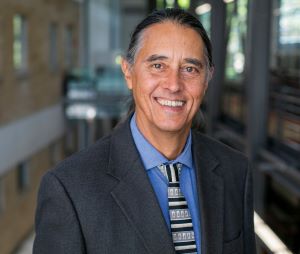
Heinz Klug – University of Wisconsin
It is with great pleasure that we present the Pipkin Prize to Heinz Klug in recognition of his outstanding contributions to the field of law and society. Professor Klug’s unwavering commitment and dedication to the Law and Society Association (LSA) have been exemplary and truly inspiring. He has served LSA in various capacities for many years, and his efforts have helped advance the Association’s mission and vision.
As a member of the Board of Trustees, Professor Klug has provided valuable guidance and leadership to LSA. He has also made significant contributions as the Co-Chair and member of the Program Committee for several LSA annual meetings, including the recent 2019 meeting in Washington DC and the 2016 meeting in New Orleans. His contributions to the success of these meetings are immeasurable.
Professor Klug has also served as the Chair and Co-Chair of various LSA committees, including the International Activities Committee from 2009-2012. He has been an active member of several other committees, including the 50th Anniversary Committee and the International Activities Committee.
As a faculty member, Professor Klug has been involved in various LSA workshops, including the Early Career Workshop, Graduate Workshop, and Summer Institute. His expertise and willingness to help aspiring scholars have been invaluable to the LSA community.
Throughout his years of service to LSA, Professor Klug has exhibited a remarkable spirit of collaboration and dedication. His contributions have been invaluable to the Association and have helped shape the field of law and society. He is truly deserving of the Pipkin Prize, and we congratulate him on this well-deserved honor.
Past Winners
Year
Individual(s)
Affiliation
Nominations Require:
- Nominees must be current members of the Law and Society Association, however, nominators are not required to be members.
- A letter of support describing the nominee’s demonstrated, sustained and extraordinary service to the Association.
- 1 or 2 additional letters of support will be accepted, but are not required.
All supporting documents must be submitted in English and be in .DOC, .RTF, or .PDF format.
AWARD
Legacy Award
The LSA Legacy Award honors people whose contributions significantly helped to develop the Association through sustained commitment to the Association’s mission and legacy, extensive service, or scholarly publications that made a lasting contribution to the Association.
Current membership in the Association is not necessary.
Current Winners (from 2021)
Rosann Greenspan
University of California-Berkeley
Rosann Greenspan is the former executive director of Berkeley’s Center for the Study of Law and Society, with which she was affiliated for 20 years until her retirement in 2019. She has also held positions as research officer at the Law Reform Commission of Canada, postdoctoral fellow at Stanford University, US Supreme Court fellow, research director at the Police Foundation in Washington, DC, and lecturer in Legal Studies at U.C. Berkeley, inter alia. Her most recent publication is the edited volume, The Legal Process and the Promise of Justice: Studies Inspired by the Work of Malcolm Feeley, edited by Rosann Greenspan, Hadar Aviram and Jonathan Simon (Cambridge University Press, 2019).
Born and raised in Niagara Falls, Ontario, Dr. Greenspan graduated with her B.A. magna cum laude in Yale University’s first class of undergraduate women. She earned an M.A. from the Centre for Criminology at the University of Toronto, and an M.A. and Ph.D. in the interdisciplinary Jurisprudence & Social Policy Program in U.C. Berkeley School of Law. Besides Ontario, where she returns regularly, she has also lived in Quebec and British Columbia, and briefly in the Yukon.
Mari Matsuda
University of Hawaiʻi at Mānoa
From her earliest academic publications, Professor Matsuda has spoken from the perspective and increasingly used the method that has come to be known as critical race theory. She is not only one of its most powerful practitioners, but is among a handful of legal scholars credited with its origin. Her first article, “Liberal Jurisprudence and Abstracted Visions of Human Nature,” published in 1986, boldly—albeit respectfully—took on liberal legal philosopher John Rawls’ theory of justice and in doing so announced her own philosophical orientation. Matsuda concludes her piece with an idea that informs much of her work in subsequent years: “There is, as Rawls suggests, a place called Justice, and it will take many voices to get there.” The voices she has in mind are the voices that have been left out, “outsider” voices speaking as individuals and as members of their communities of origin, voices of subordinate peoples. Voices from the bottom, Matsuda believes—and critical race theory posits—have the power to open up new legal concepts of even constitutional dimension. Paradoxically, bringing in the voices of outsiders has helped to make Matsuda’s work central to the legal canon. A Yale Law School librarian ranked three of her publications as among the “top 10 most cited law review articles” for their year of publication. Judges and scholars regularly quote her work.
Louise Trubek
University of Wisconsin Law School
Louise G. Trubek is an Emerita Professor at the University of Wisconsin Law School. A graduate of the University of Wisconsin and the Yale Law School, Louise is an active scholar in the fields of public interest law around the world, social justice advocacy, clinical legal education and the legal profession. Her scholarship and teaching also includes studies of regulation and governance in the European Union and the United States. Louise’s current research includes co-editing with Scott Cummings and Fabio Sa e Silva a book on the pro-bono movement worldwide: Global Pro Bono: Causes, Consequences and Contestation (Cambridge University Press, forthcoming 2020). She also co-authored with Prof. Luz Herrera “The Emerging Legal Architecture for Social Justice” published in 44 NYU Rev. L & Soc. Change 355 (2020). Other publications in the field include “Social Justice Advocacy and Innovation: The Wisconsin Center for Public Representation 1974-Present” and “Transformations in Health Law Practice: The Intersection of Changes in Healthcare and Legal Workplaces” (with Barbara Zabawa and Paula Galowitz).
Charles Lawrence
University of Hawai’i at Mānoa
Professor Lawrence joined the William S. Richardson School of Law in 2008 from Georgetown. He began his teaching career at the University of San Francisco in 1974, was a tenured professor at Stanford and Georgetown, and has visited several other schools, including Harvard, Berkeley, UCLA, and the University of Southern California. Professor Lawrence is best known for his prolific work in antidiscrimination law, equal protection, and critical race theory. His most recent book, We Won’t Go Back: Making the Case for Affirmative Action (Houghton Mifflin, 1997), was co-authored by Professor Mari Matsuda. Professor Lawrence received the University of San Francisco School of Law’s Most Distinguished Professor Award; the John Bingham Hurlburt Award for Excellence in Teaching, presented by the 1990 graduating class of Stanford Law School; and the Society of American Law Teachers national teaching award. He has been awarded honorary doctorates by Haverford College, Georgetown University, most recently, In December of 2019, he also received an honorary Doctorate from Nelson Mandela University in South Africa. He served as a member of the District of Columbia Board of Education and on many other public interest boards.
Setsuo Miyazawa
UC Hastings Law
Setsuo Miyazawa is a legal sociologist who received LL.B., LL.M., and S.J.D. from Hokkaido University and M.A., M.Phil., and Ph.D. in sociology from Yale. Professor Miyazawa has a wide range of research interests, including police and criminal justice, legal ethics and public interest lawyering, legal education, and corporate legal practice; he received his doctoral degree in Japan with a study on police, while receiving his American doctoral degree with a study on corporate legal departments. He has published or edited more than a dozen books in Japanese and English. His first English book, Policing in Japan (SUNY Press, 1992), received the 1993 Distinguished Book Award of the Division of International Criminology of the American Society of Criminology. He has also been active in the Law and Society Association (LSA) in the US, twice serving on its Board of Trustees. He co-founded the Collaborative Research Network 33 in East Asian Law and Society in the LSA in 2008 and received the International Scholarship Prize from the LSA in 2014. He co-founded the Section on East Asian Law and Society in the AALS in 2015 and the Asian Law and Society Association (ALSA) in 2016. He was the founding President of the ALSA in 2016 and 2017.
Past Winners
YEAR
INDIVIDUAL(S)
2021
Rosann Greenspan
Mari Matsuda
Louise Trubek
Charles Lawrence
Setsuo Miyazawa
2020
Carroll Seron
Keith Hawkins
Malcolm M. Feeley
Bryant Garth
David B. Wilkins
Neil Vidmar
2019
Richard L. Abel
Kitty Calavita
David Engel
William Felstiner
Lawrence Friedman
Marc Galanter
Joel Handler
Robert A. Kagan
Samuel Krislov
Herbert Kritzer
Jack Ladinsky
Richard Lempert
Felice Levine
Laura Nader
Stewart Macaulay
Lynn Mather
Frank Munger
Doris Marie Provine
Jerome H. Skolnick
Joyce Sterling
David M. Trubek
Nominations Require:
- A nomination letter signed by at least 2 LSA members
- OPTIONAL: other supporting materials
All supporting documents must be submitted in English and be in .DOC, .RTF, or .PDF format.

